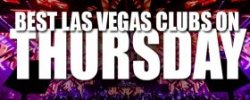 In July, more than 10, 000 black women came to Charlotte for Alpha Kappa Alpha sorority's week-long biennial international conference. Two weeks later, Jack and Jill of America, "an organization of mothers dedicated to nurturing future African-American leaders, " held its national convention here. And tens of thousands of African Americans from around the country visit Charlotte during the annual CIAA Tournament, which has taken place here for the last nine years, during the last week in February/first weekend in March.
In July, more than 10, 000 black women came to Charlotte for Alpha Kappa Alpha sorority's week-long biennial international conference. Two weeks later, Jack and Jill of America, "an organization of mothers dedicated to nurturing future African-American leaders, " held its national convention here. And tens of thousands of African Americans from around the country visit Charlotte during the annual CIAA Tournament, which has taken place here for the last nine years, during the last week in February/first weekend in March.
Venues roll out the red carpets for these out-of-towners (and locals) who come out to spend millions of dollars. For those few days, it's like a black utopia. Many of the African Americans who come to Charlotte for these national events, particularly the CIAA Tournament, rave about the city. Some later say those experiences are what propelled them to move here. But once the spotlights go down and Charlotte becomes home, nightlife and culture options for many in this demographic shrink dramatically.
 A third of this city's population is black. This includes the owner of the NBA franchise, the quarterback of the NFL team, several members of the City Council and County Commission, the police chief, and the head of public transit. Before the Feds came calling in late March, so was the mayor (and the mayor before him). Many of the executives working in the corporations headquartered from Uptown to Ballantyne are black, and so are the majority of the folks living below the poverty line from West Boulevard to Eastway Drive.
A third of this city's population is black. This includes the owner of the NBA franchise, the quarterback of the NFL team, several members of the City Council and County Commission, the police chief, and the head of public transit. Before the Feds came calling in late March, so was the mayor (and the mayor before him). Many of the executives working in the corporations headquartered from Uptown to Ballantyne are black, and so are the majority of the folks living below the poverty line from West Boulevard to Eastway Drive.
 Several of these attributes make Charlotte reflective of a major, urban American city, and all of them combined make it somewhat unique. But for all that can be checked off in the boxes describing the African-American demographic here, it's still difficult to assess the group's cultural influence on the city as a whole. From the opinions of experts and leaders to natives and newcomers, the challenge seems to come down primarily to two issues: social segregation and lack of ownership.
Several of these attributes make Charlotte reflective of a major, urban American city, and all of them combined make it somewhat unique. But for all that can be checked off in the boxes describing the African-American demographic here, it's still difficult to assess the group's cultural influence on the city as a whole. From the opinions of experts and leaders to natives and newcomers, the challenge seems to come down primarily to two issues: social segregation and lack of ownership.
- Enid Valu
- Patrons at the August edition of Charlotte’s Favorite Happy Hour at the Gantt Center.
SOCIALLY, CONSCIOUS
The phrase "young professionals" gets used frequently in the marketing of programs and events in Charlotte's African-American community. It's not simply a metric in the way it's used in corporate lingo, to denote a person, generally between the ages of 21 and 40, who is college-educated and has a salaried position. When blacks use the term, that's a part of it, but its intention is to further distinguish those young men and women who have "made it." And that de facto badge of honor also implies that this group behaves a certain way.
Typically, a black professional wants it to be known that he or she defies whatever negative stereotypes other groups may have of African Americans. So within the social scene, you'll find that they dress well, prefer upscale venues and have a taste for the finer things.
But the black professional social scene in Charlotte is often a source of angst for many within it, who lament the dearth of good or welcoming places to go to, or that the so-called hot spots never last. Newcomers quickly tire of not being able to identify where black professionals socialize after work or party after dark on a consistent basis.












october 31st just like everyone else